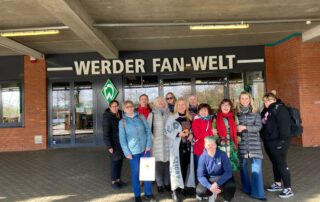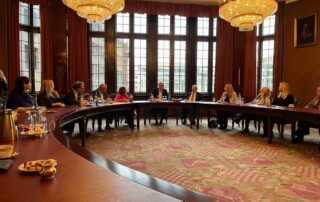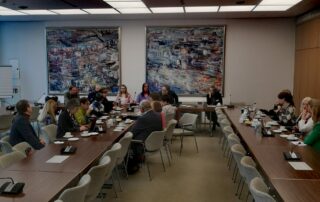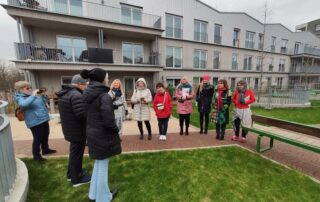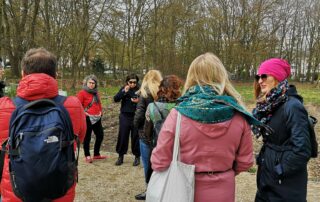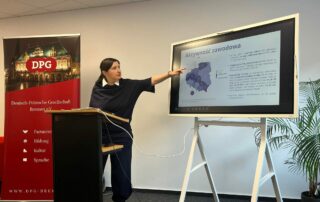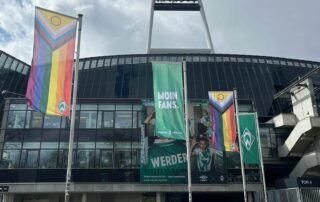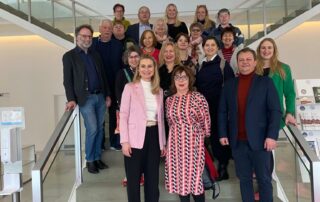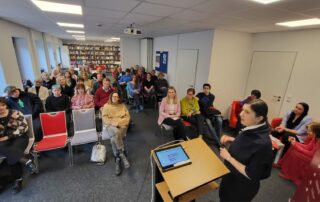Women and their rights in times of crisis – this was the theme of the fourth German-Polish Women’s Forum, held on 27-29 March in Bremen. A delegation from the University of Gdansk took part in the study visit. The Centre for Sustainable Development was represented by Barbara Kijewska, PhD.
The event was organised by the German-Polish Society, which organises and coordinates cultural events, German-Polish seminars, conferences, exhibitions and information events in Bremen and Gdansk.
The Gdańsk delegation consisted of 14 people. Among them were Elżbieta Jachlewska, Director of the Gdańsk Equal Treatment Centre and her team, and Barbara Kijewska, PhD, from the Institute of Political Science, coordinator of the CZRUG Internship Programme and an expert from the Gdańsk WAGA Association.
The programme included a visit to the Bremen Centre for the Realisation of Women’s Equality, a meeting at the Bremen Parliament and a discussion with members of the Committee on Women’s Equality, and a meeting with the Mayor of Bremen, Andreas Bovenschult.
“The purpose of the visit was to learn about institutions and good practices in action for excluded groups, especially the elderly, migrants. I was very impressed by the work of the Bremen Centre for Women’s Empowerment, which has prepared an implementation plan for the Convention on preventing and combating violence against women and domestic violence (the so-called Istanbul Convention). Although Germany adopted the Convention later than Poland, in 2018, each federal state has already managed to prepare a detailed strategy for its implementation” points out Barbara Kijewska, PhD.
Dr Kijewska also took part in a visit to the AWO (Arbeiter-Wohlfahrt) Bremen and a discussion with the chief coordinator for migration in Bremen, Lucyna Bogacki. The socio-ecological district of Stadtleben Ellener Hof also made a big impression on the participants.
“On more than ten hectares in the middle of the city, an ecological village has been built for housing for various communities, including those with special needs. The village includes a dormitory, kindergartens, dormitories for care training schools, a senior citizens’ home, housing for low-income families, but also for private individuals who have built their own homes on the site. Eighty per cent of the housing is made of wood. There is also a whole cultural infrastructure: a community centre, a community café or a Hindu temple. A nice touch indicating the links between Gdansk and Bremen, which have been twin cities since 1989, is the Paweł Adamowicz street leading to the village,” notes Barbara Kijewska, PhD.
During the German-Polish Women’s Forum, Barbara Kijewska, PhD, presented the latest results of the Women’s Congress Association’s report “Women in the labour market – the situation in Poland”.



